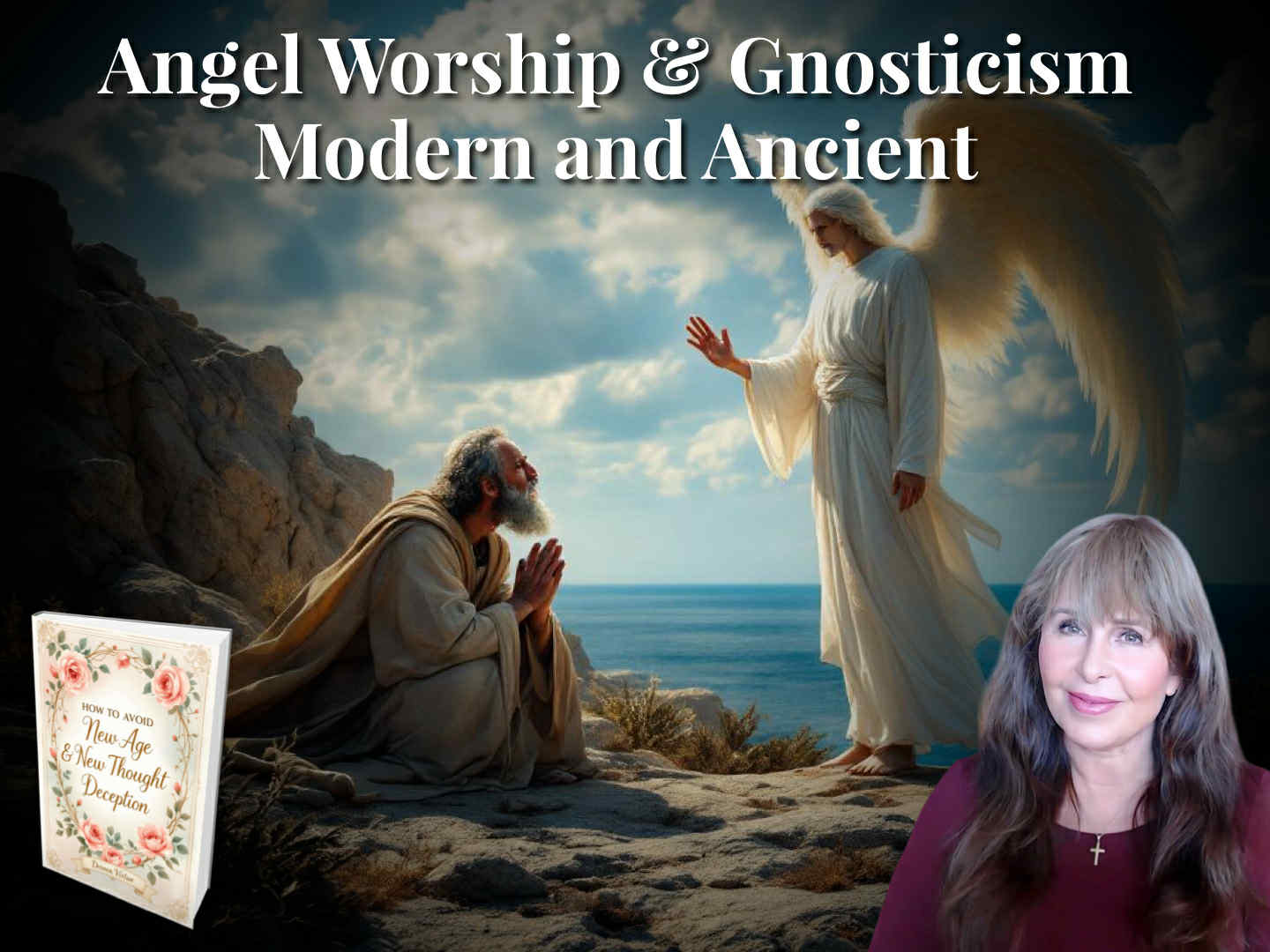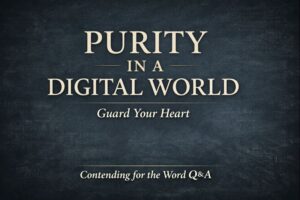⏱️ Estimated Reading Time: 8 min read
Angel Worship and Gnosticism in Ancient and Modern Times
Angel Worship and Gnosticism in Ancient and Modern Times
By Doreen Virtue, author of Biblical Truth About Angels at: https://a.co/d/ihUmnEj
One of the heresies that plagued the early church was Gnosticism, a movement that combined Greek philosophy, Jewish mysticism, and pagan spirituality into a counterfeit gospel that denied the sufficiency of Christ.
Among Gnosticism’s many errors, the worship of angels became a prominent feature which drew believers away from the supremacy of Jesus Christ as the only Mediator between God and man (1 Timothy 2:5). This false teaching resurfaces repeatedly in history, and today we find angel worship in hyper-charismatic movements such as the New Apostolic Reformation (NAR) and in New Age and Wiccan spirituality.
The apostle Paul warned the church at Colossae against the worship of angels: “Let no one keep defrauding you of your prize by delighting in self-abasement and the worship of the angels, taking his stand on visions he has seen, inflated without cause by his fleshly mind, and not holding fast to the head” (Colossians 2:18-19).
This passage describes and confronts the danger mystical practices that promised secret access to God through angelic intermediaries. Instead of clinging to Christ, false teachers exalted visions and angelic encounters.
Similarly, the apostle John addressed the spirit of Gnosticism when he exhorted believers to “test the spirits to see whether they are from God” (1 John 4:1). Gnosticism denied Christ’s true humanity and diluted His divinity by presenting Him as merely one among many spiritual beings, thus corrupting the gospel. Gnostics taught that Jesus rose from the dead as a spirit, instead of the truth about His bodily resurrection. So, the apostle John’s test of the spirits is the confession that Jesus Christ has come in the flesh.
The danger of angel worship can also be seen in the book of Revelation. The apostle John in his apocalyptic vision, fell at the feet of an angel in worship but was rebuked: “Do not do that! I am a fellow servant of yours and of your brethren who hold the testimony of Jesus; worship God” (Revelation 19:10). Scripture consistently redirects worship away from creations, including angels. We are to worship and give all glory to God.
Gnostic Heresies
Gnosticism was a system that promised hidden knowledge (gnosis) and spiritual elevation apart from Christ. It drew heavily on Platonic dualism which taught that the physical world was evil and the spiritual realm was superior. Salvation, therefore, was escaping from the material world through mystical enlightenment. Angelic beings were often portrayed as intermediaries between God and the material realm. This distorted worldview undermined the sufficiency of Christ, replacing Him with counterfeit mediators.
Christian Science that I was born and raised in is an example of neo-gnosticism with its emphasis upon matter being “unreal and temporal,” and that only the spiritual is real and eternal. A Course in Miracles which is considered the “new age bible” was channeled by a woman who had Christian Science influences. This book also touts the Gnostic philosophy of ignoring matter because it’s unreal. So, many New Agers hold this view and they will ignore or deny physical realities as part of the dissociation of New Age.
The apostles didn’t use the term “Gnosticism,” yet they repeatedly condemned its elements: elitist “knowledge” (1 Timothy 6:20), denial of the incarnation (1 John 4:2-3; 2 John 7), reliance on mystical visions (Colossians 2:18), and rejection of Christ’s lordship (Jude 4). The early church fathers such as Irenaeus in Against Heresies also exposed these false Gnostic teachings.
Neo-Gnostic Beliefs and Practices about Angels
The New Apostolic Reformation (NAR) and movements associated with Bethel Redding emphasize angelic encounters, heavenly visitations, and secret revelations beyond Scripture. Similar to the New Age teachings I was involved in prior to my salvation, NAR leaders describe their so-called interactions with angels, practices that mirror the Gnostic fascination with angelic hierarchies (which are based upon Psudo-Dionysius deuterocanonical literature and not upon the Bible which never described this angelic hierarchy).
This is precisely what Paul warned against in Colossians 2:18. When individuals claim visions of angels or promote teachings not grounded in Scripture, they are “inflated without cause by their fleshly mind.” As someone who was saved out of the deception of angel channeling, I can attest to the dark and demonic nature of this practice.
When believers are trained to seek hidden knowledge or supernatural experiences rather than Christ Himself, they’re vulnerable to counterfeit spirits masquerading as angels of light (2 Corinthians 11:14-15). My experiences with “angels” in the New Age were real, yet they weren’t with God’s angels. They were with demons masquerading as angels of light. In doing so, I was an unwitting servant of the devil as 2 Corinthians 11:15 warns.
Roman Catholic tradition includes the “Prayer to Saint Michael,” asking him to “defend us in battle” and to “cast into hell Satan and all evil spirits.” While this may sound pious, the practice isn’t biblical. Scripture never commands us to pray to Michael, nor to any angel. In fact, the Word of God is very clear that all prayer is to be directed to God alone, in the name of Jesus Christ, through the power of the Holy Spirit (John 14:13-14; Ephesians 2:18).
In the New Age movement, angels are portrayed as spirit guides who are help people to manifest their wishes, and who bring guidance. Of course, this “angelic guidance” always fails the 1 John 4:1 test of the spirit and never points people to the real Jesus. New Age beliefs about angels mirror the Gnostic error of exalting created beings above the Creator and deny the sufficiency of Christ.
New Agers present angels as accessible intermediaries who provide secret wisdom and comfort, while in reality they’re deceiving spirits leading people away from God’s truth. I repent and renounce my previous teachings and involvement with New Age teachings, and deeply apologize to anyone who was affected by these teachings. Today, all of my writing points to the Gospel of Jesus Christ’s life, death, and resurrection as the only way to salvation.
The appeal today is the same as it was in Colossae of mystical experience, hidden knowledge, and spiritual power apart from Christ. The Bible, however, makes it clear that angels are ministering spirits sent out to serve those who will inherit salvation (Hebrews 1:14), not beings to be invoked or worshiped.
From the first century until now, the temptation to worship angels has been a recurring manifestation of Satan’s strategy to divert attention from Christ. Whether in the mysticism of the Gnostics, the visionary claims of hyper-charismatic leaders, or the counterfeit spirituality of the New Age, the error remains the same attempt to replace the sufficiency of Christ with angelic mediators or mystical experiences.
The Biblical command is clear: “Worship God” (Revelation 19:10). Christ alone is the image of the invisible God, the Creator of all things, including angels, and the One who reconciles all things to Himself by the blood of His cross (Colossians 1:15-20).
The church must therefore resist every form of angel worship and every counterfeit gospel, holding fast to Christ, who is the true Head, the only Mediator, and the Lord of all.
Some people will say, “We don’t worship angels, we’re just asking them for help.” Yet seeking supernatural help from created beings rather than from God Himself is an act of misplaced devotion that robs God of the glory due His name. Praying for angels to help you is a form of worship, and this practice is condemned and spiritually dangerous.
If someone asks angels for guidance, provision, or protection, they’ve crossed the line into giving them the trust and dependence that belong only to the Lord. Even John, in the book of Revelation, fell before an angel and was rebuked: “Do not do that! I am a fellow servant of yours” The angel emphasized that only God is to be worshipped (Revelation 19:10). If angels themselves forbid worship, why would we believe they would ever invite our prayers?
God does send His angels to serve and protect His people (Hebrews 1:14, Psalm 91:11), but He never commands us to ask them directly. No one in the Bible invokes angels, as is a common practice in New Age, Wicca and some NAR churches.
God commands us to call upon Him in the day of trouble (Psalm 50:15), to pray in the name of Jesus (John 14:13–14), and to rely on the Holy Spirit’s help (Romans 8:26). To bypass the Lord in order to speak with angels is disobedience, and it reflects the same Gnostic deception Paul condemned in Colossians 2:18. Any teaching that encourages direct communication with angels rather than with God Himself opens the door for demonic deception.
Angels serve God, not us. They don’t take prayer requests; they take orders from the Lord of Hosts. To pray to them or ask them for help is to treat them as mediators, when Scripture makes it clear that “there is one Mediator between God and men, the man Christ Jesus” (1 Timothy 2:5).
Doreen Virtue is the author of Biblical Truth about Angels: What the Bible Really Says about Angels and Archangels, available at https://a.co/d/ihUmnEj
For more articles and her podcast please visit her page here at Servants of Grace.
Doreen Virtue holds a Master’s degree in Biblical & Theological Studies with highest honors from Western Seminary (56 units / 2021), and an MA in Counseling Psychology from Chapman University. Prior to being saved by God‘s grace and mercy in 2017, Doreen was a psychotherapist specializing in women’s issues, rated in the top 15 most influential living spiritual teachers by Watkins, and the top selling new age author in the world. She was born and raised in new thought churches which she attended for 33 years, before segueing to new age and Wicca in 1991 while touring with a mind-body-spirit conference organization. Before her salvation, Doreen frequently appeared on Oprah, CNN, The View, Coast to Coast and other liberal secular media. After the Holy Spirit convicted her of her sins, while she read Deuteronomy 18:10-12, Doreen repented and gave her life to Jesus as her Lord and Savior. Doreen has been helping professing Christians to identify and avoid new age and new thought deception. Doreen volunteers in discipling women who’ve been saved out of New Age in a private Facebook group. Doreen was a speaker at the Answers in Genesis 2025 women’s conference at the Ark Encounter. She has been featured on American Gospel 3, American Gospel TV, Daily Wire, Moody Radio, Spillover, Christianity Today, Cultish, New York Magazine, Spiritual Counterfeits Project, Servants of Grace, and other Christian media.




